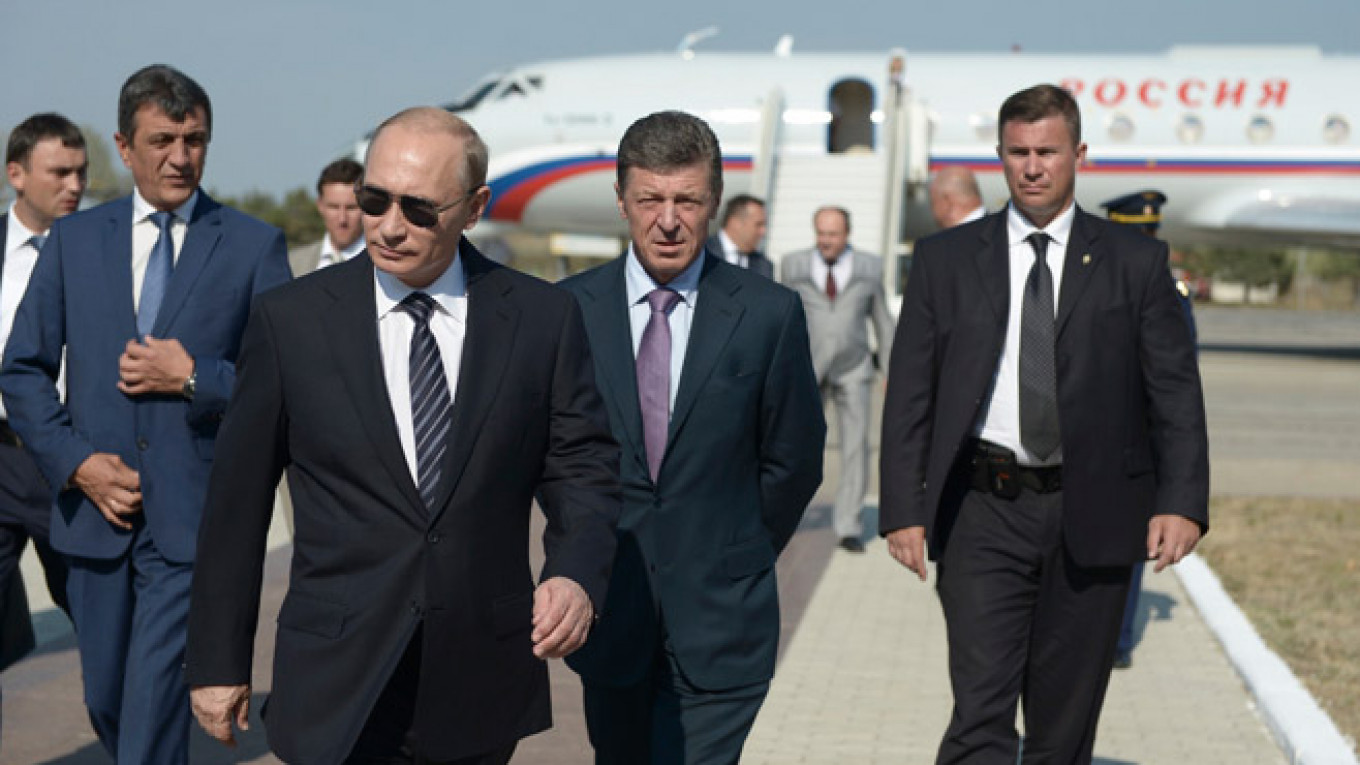To an outside observer, Russia may appear to be punching above its geopolitical weight in Ukraine. Despite appearances though, the Kremlin's policy-making process is breaking down under the strains of one-man rule. What looks like audacity and forcefulness is more often merely the byproducts of improvisation, knee-jerk reactions unrestrained by due government process.
In summer 2013, as Ukraine was moving to sign its association agreement with the European Union, the interagency consensus within the Russian government concluded that the best response would be to play it down, warn Kiev of likely trade retaliation and wait for the whole EU thing to unravel over then-President Viktor Yanukovych's refusal to free former Prime Minister Yulia Timoshenko.
Top aides to Yanukovych privately told Moscow that the deal with the EU was largely a political show to secure Yanukovych's re-election in 2015. Moscow surveyed all the other top players in Ukraine — Klitschko, Yatsenyuk, Poroshenko — and concluded that Yanukovych and his Party of Regions was still the best bet for Russia's interests. There was concern that applying too much pressure on Yanukovych to turn him away from the EU and toward the Russia-led Customs Union might bring down the regime.
But President Vladimir Putin acted on his own sense of the situation, informed by private advice from outside the government. The resulting damage to Russia's interests dwarfs the negative impact of Ukraine's dalliance with the EU.
When Crimea "happened," the initial policy recommendation was to organize a vote on independence, taking the lead from Kosovo. This was reasonable, allowing Russia maximum flexibility and strong leverage in future talks with Kiev over Ukraine's future allegiance, while minimizing the risk of Western sanctions and the costs to the Russian budget.
Putin chose annexation — the irreversible option that makes the conflict with Ukraine and Western sanctions permanent. Any negotiated settlement will now require either a humiliating Russian withdrawal from Crimea or Kiev's agreement to substantial compensation.
One-man rule makes it redundant to do due diligence when crafting foreign policy. Interagency consensus is replaced with competition for the ruler's attention. Competence, foresight and prudence yield to sheer recklessness.
Insiders are betting Putin's luck will carry the day in Ukraine. Luck, though, is not a safe policy assumption.
Vladimir Frolov is president of LEFF Group, a government relations and PR company.
A Message from The Moscow Times:
Dear readers,
We are facing unprecedented challenges. Russia's Prosecutor General's Office has designated The Moscow Times as an "undesirable" organization, criminalizing our work and putting our staff at risk of prosecution. This follows our earlier unjust labeling as a "foreign agent."
These actions are direct attempts to silence independent journalism in Russia. The authorities claim our work "discredits the decisions of the Russian leadership." We see things differently: we strive to provide accurate, unbiased reporting on Russia.
We, the journalists of The Moscow Times, refuse to be silenced. But to continue our work, we need your help.
Your support, no matter how small, makes a world of difference. If you can, please support us monthly starting from just $2. It's quick to set up, and every contribution makes a significant impact.
By supporting The Moscow Times, you're defending open, independent journalism in the face of repression. Thank you for standing with us.
Remind me later.








